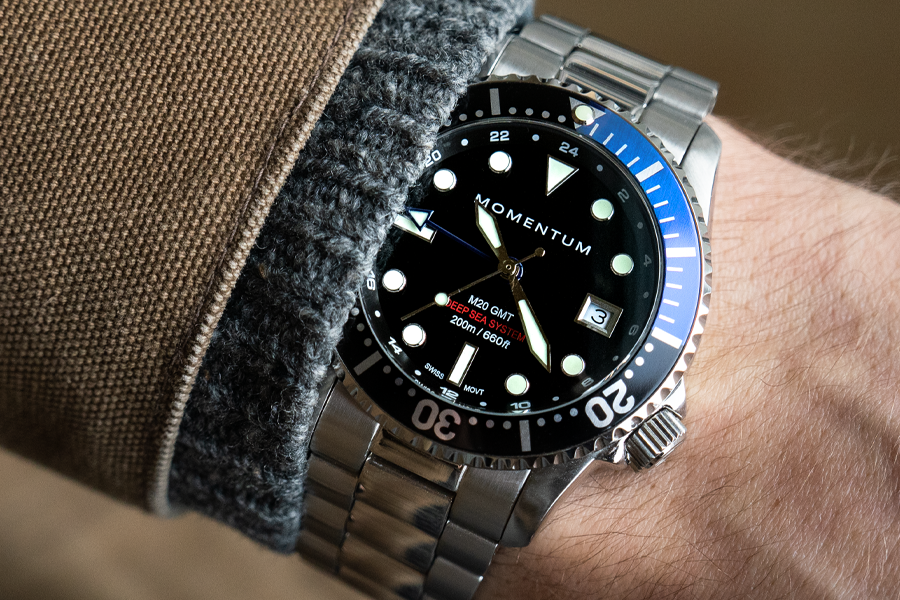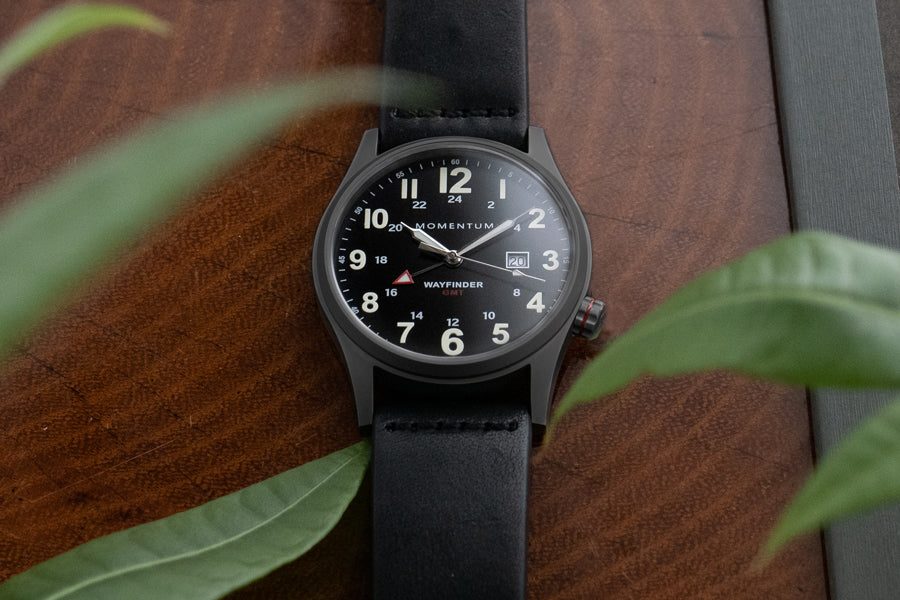GMT watches feature an additional 24-hour hand, so they show you two-time zones at once (sometimes three, if there is also a 24-hour bezel). While a normal hour hand travels around the dial once every 12 hours, the GMT hand travels around the dial only once every 24 hours. The GMT scale on the dial is in 24-hour, military time, so you will never confuse AM and PM when you travel. Pilots often cross many time zones, so GMT provides a constant time reference and avoids any confusion over which time-zone is meant. It can be a little confusing to see that noon GMT, or 1200 hours, is shown when the GMT hand points to 6 o'clock, at the bottom of the dial, but once you get the hang of it, a GMT watch is the ideal travel companion.

While pilots like to set the 4th hand to GMT, many non-pilots set it to their home time, then adjust the main hands to local time, as they travel. That way, you always see your home time at a glance and never confuse midday with midnight.

Where does the term GMT come from?
The term GMT comes from Greenwich Mean Time, the time-meridian, which was the point chosen as Earth’s zero degrees of longitude back in 1884. GMT initially served as an international standard time, around which most other local times were based. Some people also refer to GMT as "UTC", the French acronym for Coordinated Universal Time.



 SHOP GMT WATCHES
SHOP GMT WATCHES

Leave a comment
This site is protected by hCaptcha and the hCaptcha Privacy Policy and Terms of Service apply.